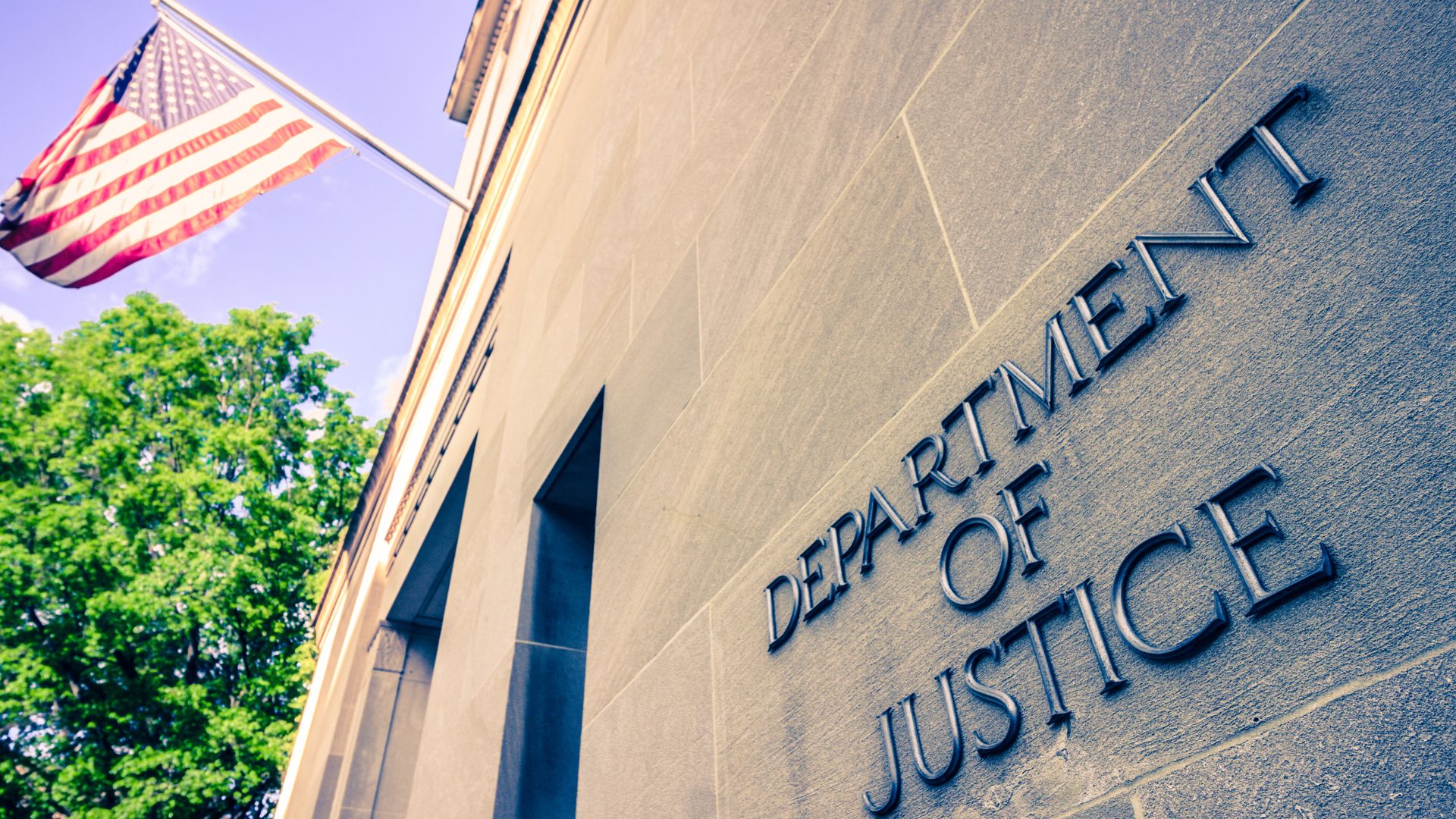You are viewing your 1 free article this month. Login to read more articles.
DoJ says PRH and S&S merger will create duopoly as trial over $2.2bn deal concludes
The Department of Justice has claimed Penguin Random House’s $2.2bn merger with Simon & Schuster will create a duopoly and damage competition in the US, as both sides made their closing arguments in court.
On the final day of a three-week trial in Washington DC on 19th August, lawyers for PRH and S&S defended the merger, arguing it would actually increase competition and claiming the US government had not proved it would create significant harm. Both sides will now present post-trial briefs before Judge Florence Pan makes a final verdict later this year on whether the merger should be blocked.
Presenting his closing argument, Department of Justice attorney John Read said the merger would reduce the number of players in the market and “exacerbate the risk of co-ordination”. According to Publishers Weekly, he said: "This merger will end that competition which benefits authors, and authors will earn less money for what they write."
He went on: “We brought this case because the best protection for authors is robust competition. This is not about the passion of publishers for books and authors, this is about the largest publisher, Penguin Random House, cementing its position at the top of the market.”
Read said the defendants had tried to persuade Judge Florence Pan that publishing was “an industry where the normal rules of economics and antitrust do not apply”. He added: “It’s almost like they’re claiming that the value of books isn’t about expected sales, but alchemy.”
Turning to claims in the trial that PRH would be a good home for S&S, he said: "The good intentions of the defendants don’t save this merger, and they don’t save this industry from a duopoly."
The Department of Justice has centred its case around the merger’s effects on authors who earn advances of $250,000 or more—a sub-market PRH and S&S say they do not recognise and claim has been invented by the government. However, Read noted books with higher advances were expected to have higher sales. He noted $250,000 was S&S c.e.o. Jonathan Karp’s level of approval, while PRH c.e.o. Markus Dohle said books above that line could “meaningfully change” PRH’s market share.
He also dismissed the argument that new competitors such as Amazon Publishing could take on the established US “Big Five”, noting no other publisher entering the market in the past 30 years had become as strong as those companies.
After the merger was first announced, Dohle told agents S&S and PRH imprints would continue to bid against one another at auction. During testimony, Dohle assured the court this would be the case, though he admitted he had not found a way to make it legally binding. Read said: “It’s not enforceable, but it is revocable. They can close, merge, refocus imprints; they can admonish editors not to take risks, they can deny them money for advances. All this can be done internally without violating the law.”
His closing argument repeated figures from the government’s expert witness, economist Nathan Hill, who found the merged company would control 49% of the market for “anticipated top-selling books” and the Big Five will have more than 95% of the market. Advances at PRH would fall by $45,000 per book and plunge $105,000 at S&S, he said. The defence argues his model does not fit the industry and fails to take into account a myriad of other factors, including the influence of agents.
Read also suggested the merged company could use its dominance to strike against rivals. He said: “When PRH has half the market, they can easily poach or counter-poach authors or delay printing of their books.” It could also take on agents and authors, he said, explaining: “We could see standardisation of the royalty at 15% and non-negotiability of audio rights.”
In his own closing argument, PRH attorney Dan Petrocelli reiterated what many witnesses have suggested, which is that taking on books is a gamble. The position was memorably summed up by Dohle during testimony, who said: "Everything is random in publishing. Success is random. Bestsellers are random. So that is why we are the Random House."
Petrocelli said buying a title with a $250,000 advance or more was much riskier than the government has claimed, saying they would be better named “unanticipated top sellers". “That’s where the risk and gambles are being taken that you heard so much about,” he said.
According to Publishers Lunch, he added: “The only authors who can truly be identified by advances—we’re talking about the franchise and celebrity authors, not by authors defined by advances as low as $250,000 or $150,000.”
Petrocelli again attacked the $250,000 figure, saying $50,000 would have been a better market to look at as there are more buyers concentrated there. He said: “What we heard throughout is regardless of the advance levels, we see the same bargaining processes, the same editorial process, the same marketing methods, the same sales process.”
He repeated PRH US c.e.o. Madeline McIntosh’s claim that books with large advances don’t necessarily get special treatment and a book’s worth is not quantified by a profit and loss (P&L) statement. He said: “Actual marketing spend is not based on what is in the P&L. As Madeline McIntosh said, what a publisher spends on a book is based on feedback from retailers, salespeople and others. Marketing only has a loose correlation to the advance.”
The attorney concluded of the $250,000 figure: “The only reason we are here is because the government has created artificial concentration to create artificial harm.”
Petrocelli also ran through his own side’s figures, which show 60% of book sales are bilateral negotiations, 20% come from best bids and only the rest are round-robin auctions.
He compared the figures of Hill and PRH’s expert witness, economist Edward Snyder, saying: “When it comes to winning bids on anticipated top-selling titles, Snyder said PRH or S&S won 6% of the time and Hill said they won 12%. So 90% of the time, neither of these companies are number one or number two.”
Citing testimony by John Glusman, vice-president and editor-in-chief of US indie W W Norton, he also argued the merger could actually increase advances, saying of other publishing firms: “These companies are going to be motivated to compete against a company with greater resources and will need to pay more."
That point was echoed by S&S lawyer Stephen Fishbein in his own summing up, who argued the government had assumed market share would be the same post-merger. According to Publishers Lunch, he said: “There’s clear evidence that it’s not going to be a static situation… You’re going to have other empowered competitors motivated to take advantage of any softening that they see. The DoJ models just don’t account for that.”



















